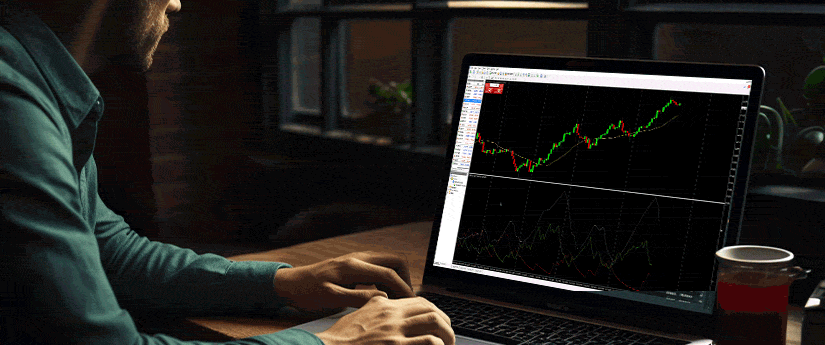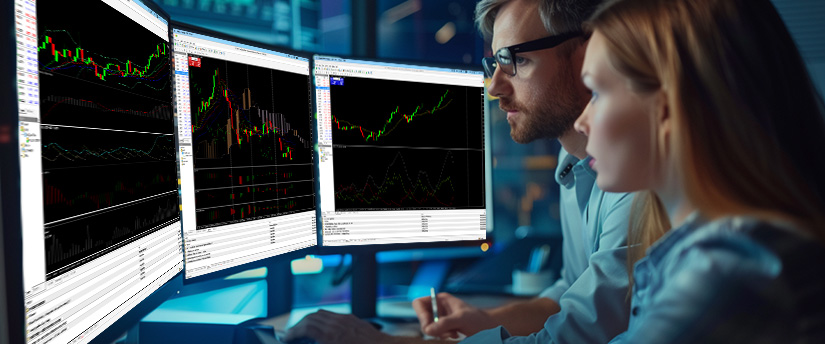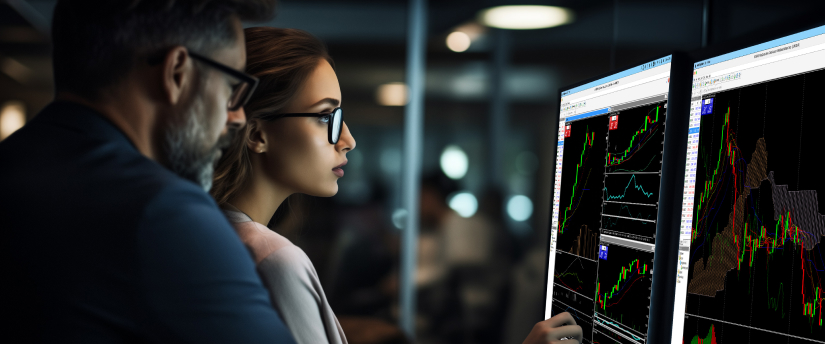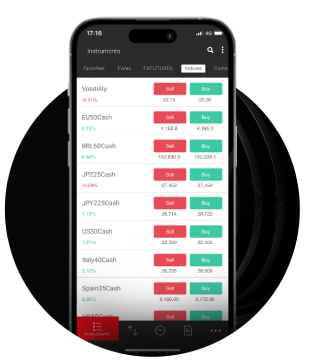Trading is difficult, and most traders reach an impasse at some point. They’ve studied forex enough to understand how the market works, and they’ve taken the time to understand their platform. They’ve traded on a demo for some time and managed to achieve some results. Some may have taken that to a live account and have made a few well-placed trades.
But then they hit a wall. Either they can’t get off the ground, or they hit a point where they don’t feel like they are improving. Perhaps they try switching tactics, and that can propel them for a bit, but then they stop again. These traders often bang their heads thinking of solutions and alternate trading routes, only to come up short. They either settle and lower their expectations or quit altogether.
For many of them, it’s difficult to see what’s wrong. They may comb through their trade histories and find that their numbers look great on paper. However, forex is about more than just numbers, and every individual trader’s mindset matters.
In this article, we will discuss risk and how it can drastically affect your trades without you knowing.

What is Risk in Trading
In trading, risk refers to the possibility of losing a part of all of your funds. This can happen in a single trade for those who are particularly careless, or more often, over a series of misplaced positions.
Risk in forex is inherent. Unless you are clairvoyant, you can’t be 100% sure what will happen. Even the best traders, for instance, can’t tell you the exact pip EUR/USD will be on 24 hours from now. They can only ballpark it.
However, while risk is natural in online markets, it still has a strong impact on traders. You’ve put your time and effort into learning how to trade, and perhaps you’ve devoted a significant amount of capital as well. The thought of all of that being for naught is frankly terrifying.
This feeling is what causes the strong emotional reactions that usually stifle trading performance. Learning how to handle these reactions is the key to becoming a consistent trader.
The Psychology of Risk
Emotions in forex trading influence every decision a trader makes, from when they open a position to when they close it. This effect often goes unnoticed, and can feel like it’s intuition taking over, or like a sensible reaction to market circumstances.
And while we all like to think we’re rational, our emotions dictate our behaviour much more than we notice. It’s no different in trading.
So, some would try to eliminate these emotions. Bottle them up and pretend they aren’t there. However, like in everyday life, this doesn’t work in trading. These emotions stew and bubble, subconsciously affecting a trader’s actions. In the most severe cases, they burst, causing a streak of bad decisions that can end up negating all the progress they’ve made, or even completely depleting their accounts.
There’s no way of deleting the emotions that happen during forex trading. For traders to mature, they need to learn to recognise driving emotions, notice when they are running high, and learn how to operate sensibly, even when they are impassioned.

The Fear of Loss
Fear is perhaps the most common and most severe emotion traders suffer from. The fear of losing the money you’ve put into your account, as well as the feeling that the effort you’ve put into mastering the complicated world of forex trading was in vain, can significantly influence your actions.
Because of that, failed trades can feel like personal failures rather than only financial losses. When all that adds up, it’s no surprise that traders will try to avoid loss, even at the cost of avoiding wins as well.
There are three primary ways that fear manifests in trading. The most common one is closing trades too early. This one is also the most difficult to spot, since on paper, these forex trades are usually wins, and traders count them as positive performance. But in reality, these are deviations from a trading tactic that cut down potential earnings. Is earning $5 when you could’ve earned $100 really a win?
The next one is avoiding opportunities because of a recent loss. This is more straightforward: a trader has a big loss, perhaps due to an unexpected market move, and then avoids positions that look similar. However, the market is unpredictable and somewhat senseless. It’s important to understand that sound tactics work out over time, even if there is a loss or two along the way.
Lastly, we have overanalysing. This is the tendency to go too deep into calculating every single trade. This leads to slower trading, more mental strain, burnout, and paralysis by analysis.
The key to overcoming all of these is to accept loss as an inevitability. Even the world’s best forex traders lose some trades. What makes them pull through is a solid strategy and their belief in it.
Greed in forex Trading
The other significant driver in forex trading is greed. While fear leads to risk avoidance, greed acts oppositely and leads traders to ignore risk. This can lead to them overexposing themselves on the market and losing more than they can afford to.
Greedy traders open larger positions than they need to, stay in positions for too long, or take unnecessary risks. This can sometimes lead to quite rapid losses and missed profits as traders hold positions too long and miss their peaks.
Greed is often triggered by the need for excitement. A winning streak feels great, and many traders chase that high. Conversely, a fearful action can trigger greed, as traders feel like they’ve missed out and need to make up for it.
The key to controlling greed is relying on a trading tactic. Staying within the borders of what you know is sound decision-making. This is easier said than done, but there are also tools in platforms that help control risk as well as these emotions.

Risk Management in forex and Sticking to Your Plan
The only way to handle risk is to be prepared for it. If it takes you by surprise, an emotional response is only natural. Only through a firm trading plan and smart risk management can traders handle the emotions that come with risk.
The most important parts of your plan pertaining to emotional trading are:
- In which market conditions will you trade
- What are your entry conditions?
- What are your exit conditions?
- How much of your capital will you risk per trade? (1-2% recommended)
- Where do you set your take profits and stop losses?
Having these relatively strict guidelines in place will help with emotional trading. Even if you sometimes bend your plan a bit to fit a unique situation, you can always ask yourself: Am I following my strategy or letting my emotions run wild? If you answer that question truthfully, you’ve already made a major stride to a smarter trading routine.
Also, remember that emotions can build up, even when you’re in control of them. Take breaks, breathe, make yourself a coffee, watch an episode of your favourite TV show, destress. Keeping your emotional well-being in mind, although not directly related to trading, will lead to better performance overall, as it will reduce emotional exhaustion, frustration, and burnout.
Disclaimer: This information is not considered as investment advice or an investment recommendation, but instead a marketing communication. IronFX is not responsible for any data or information provided by third parties referenced, or hyperlinked, in this communication.


















